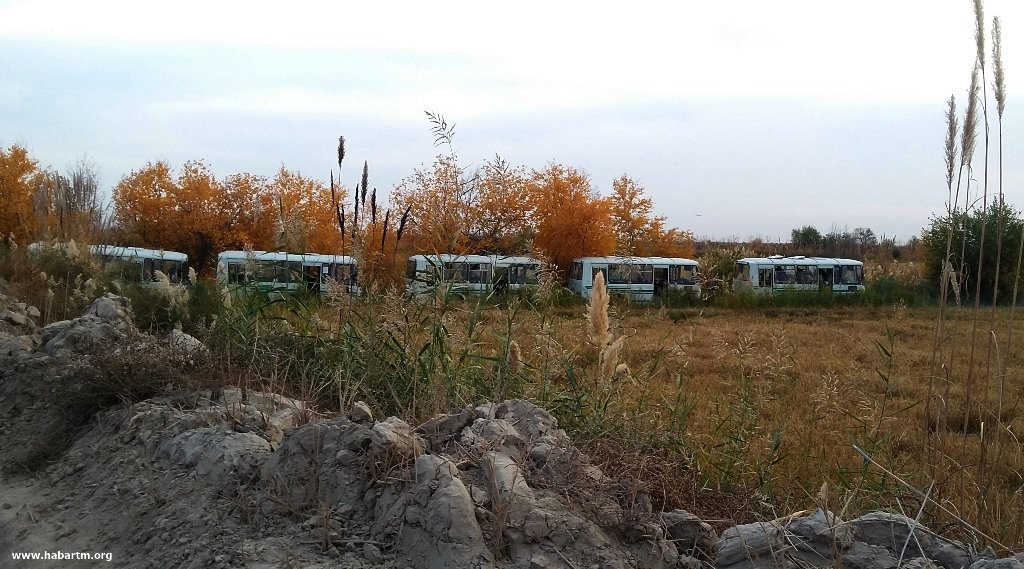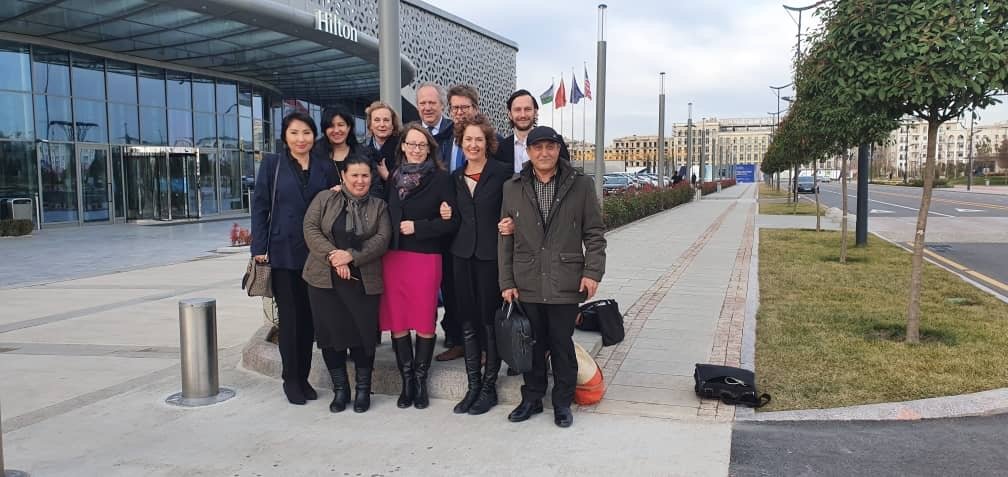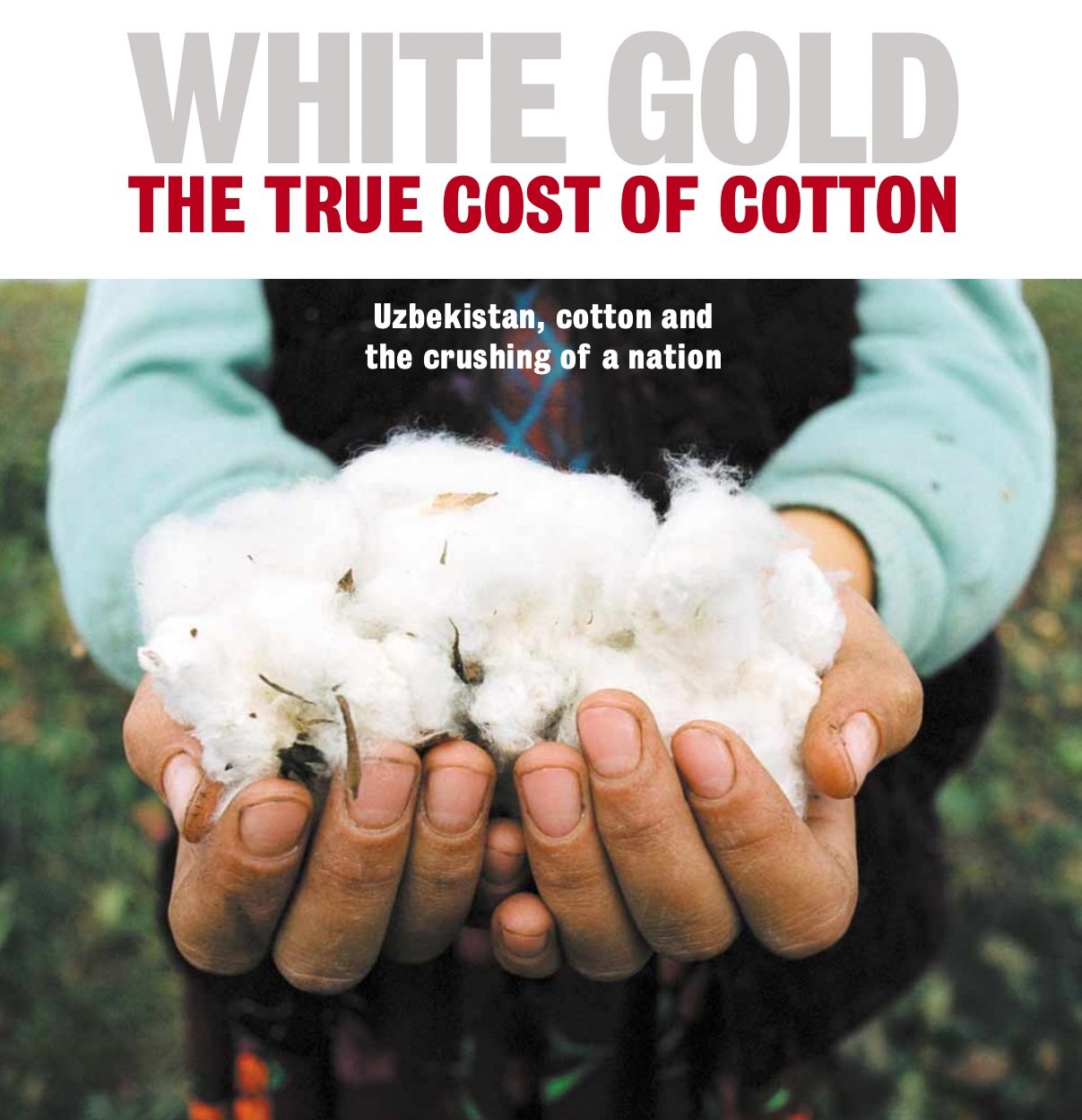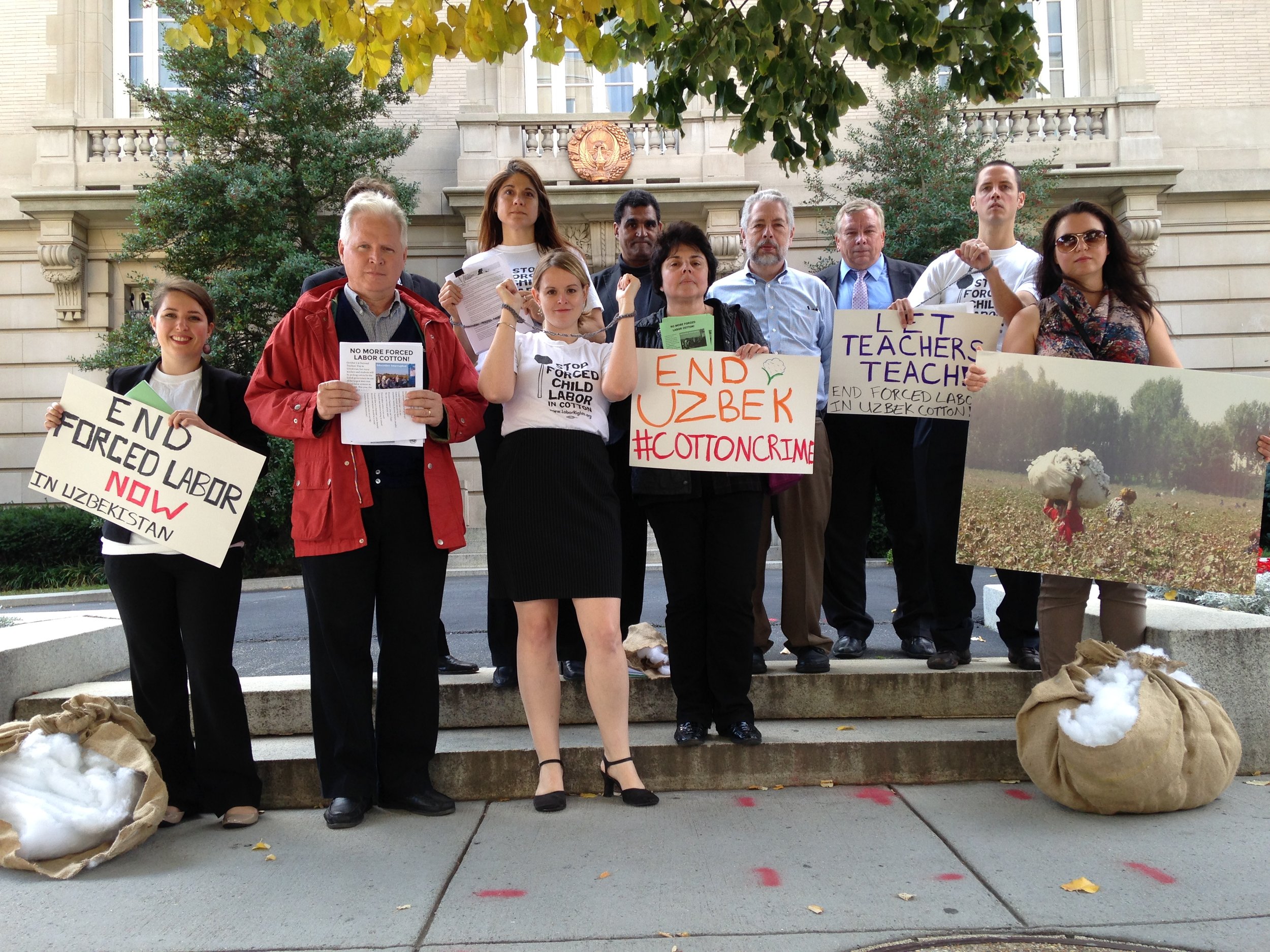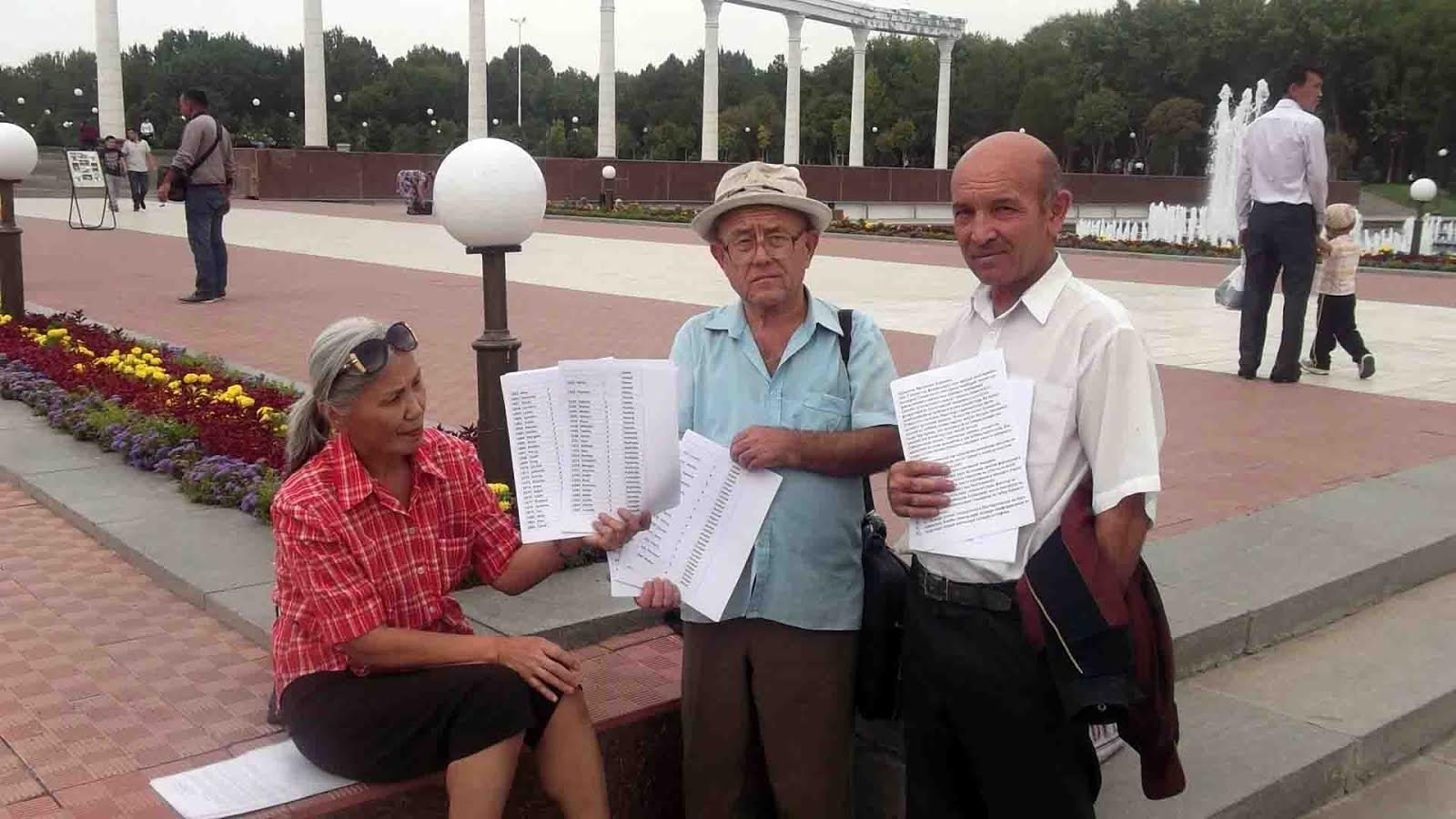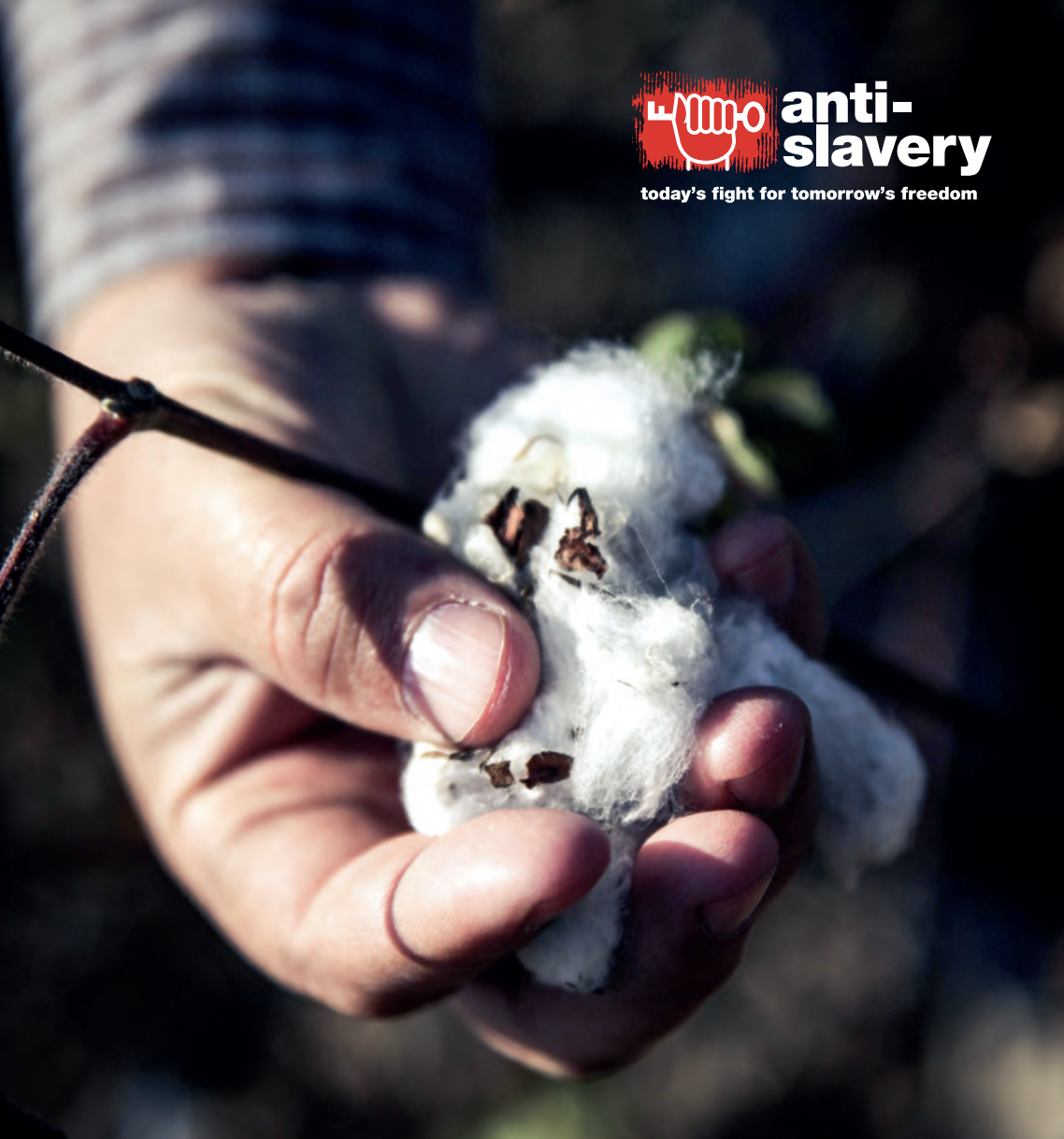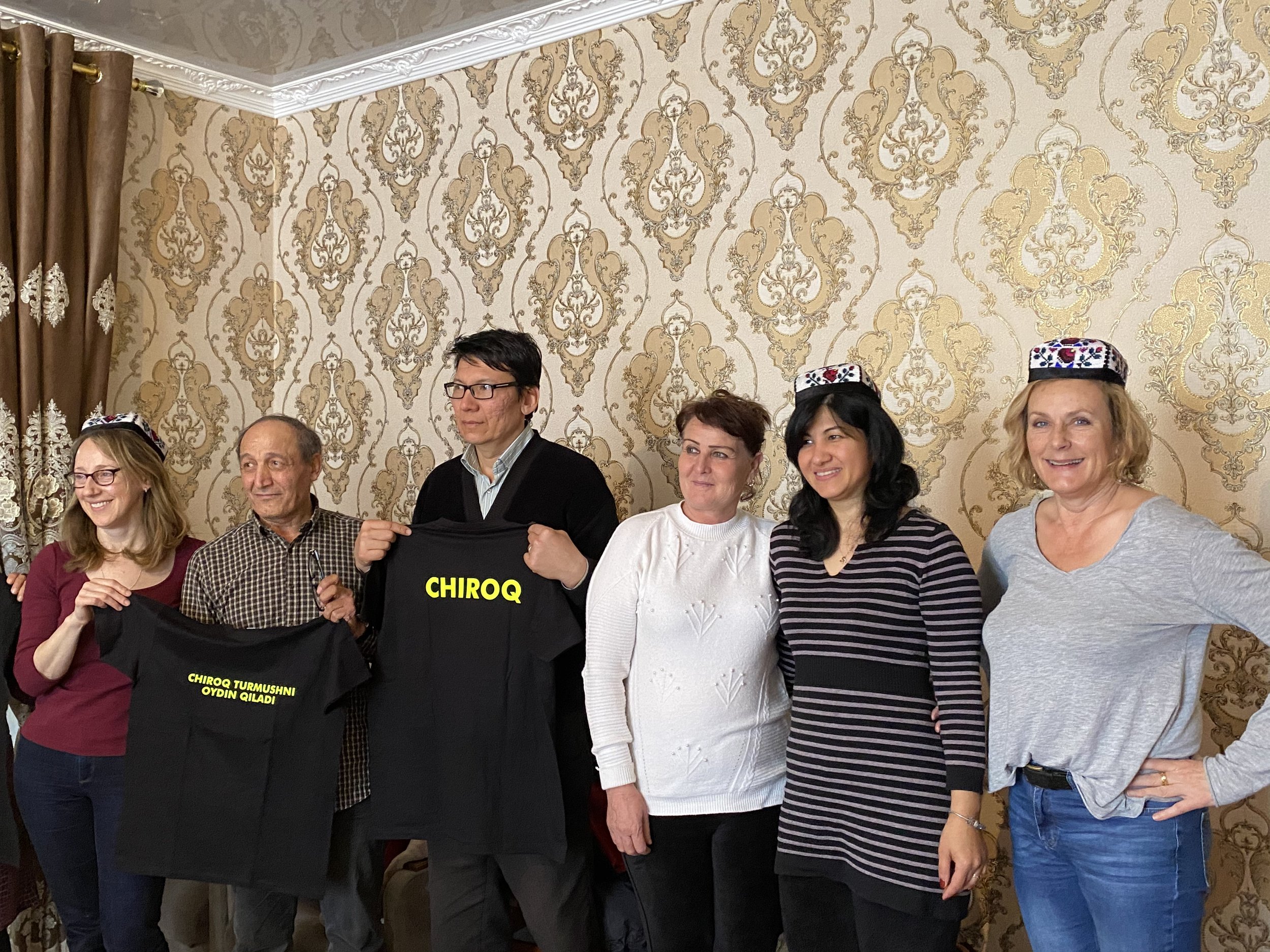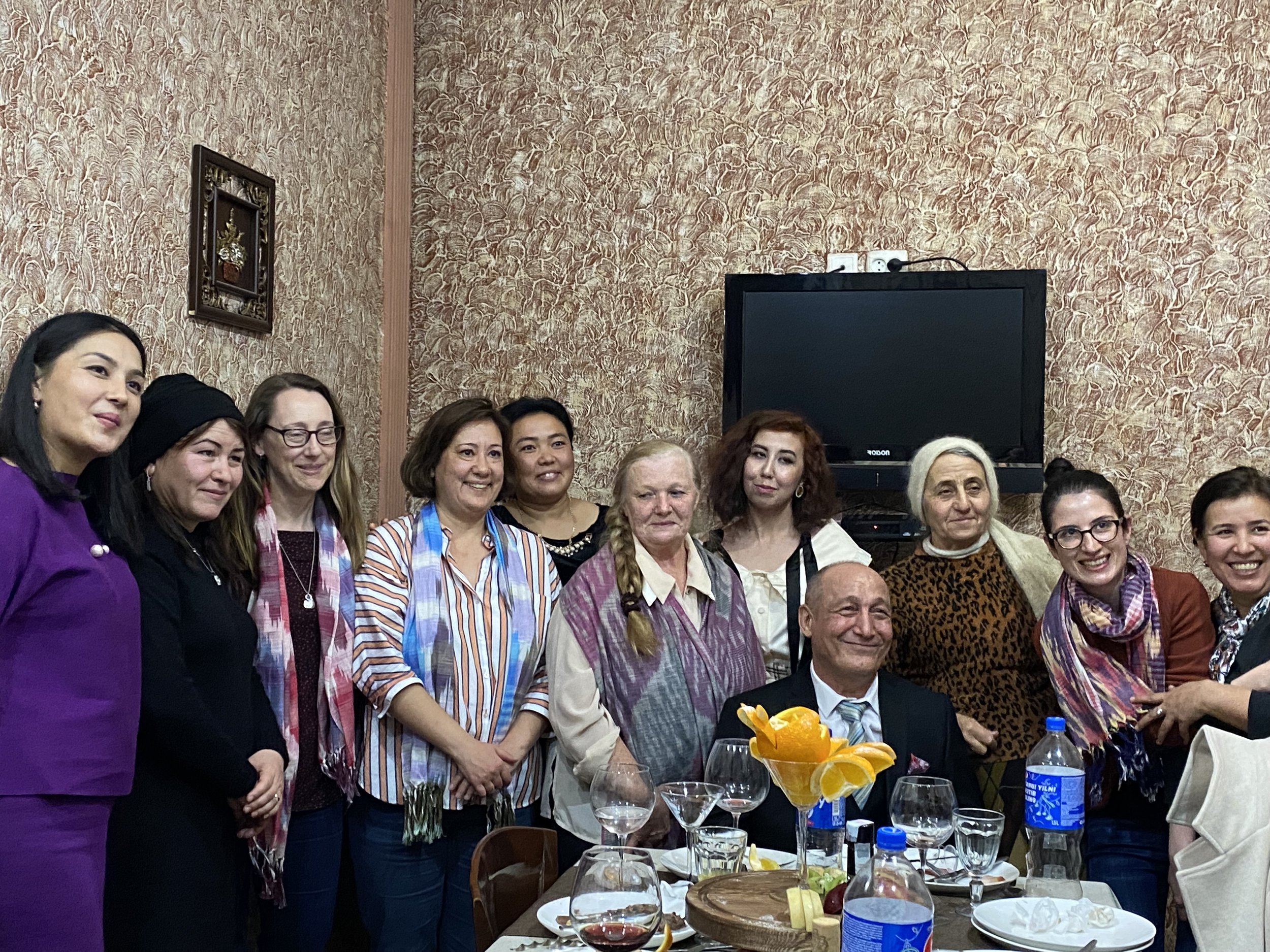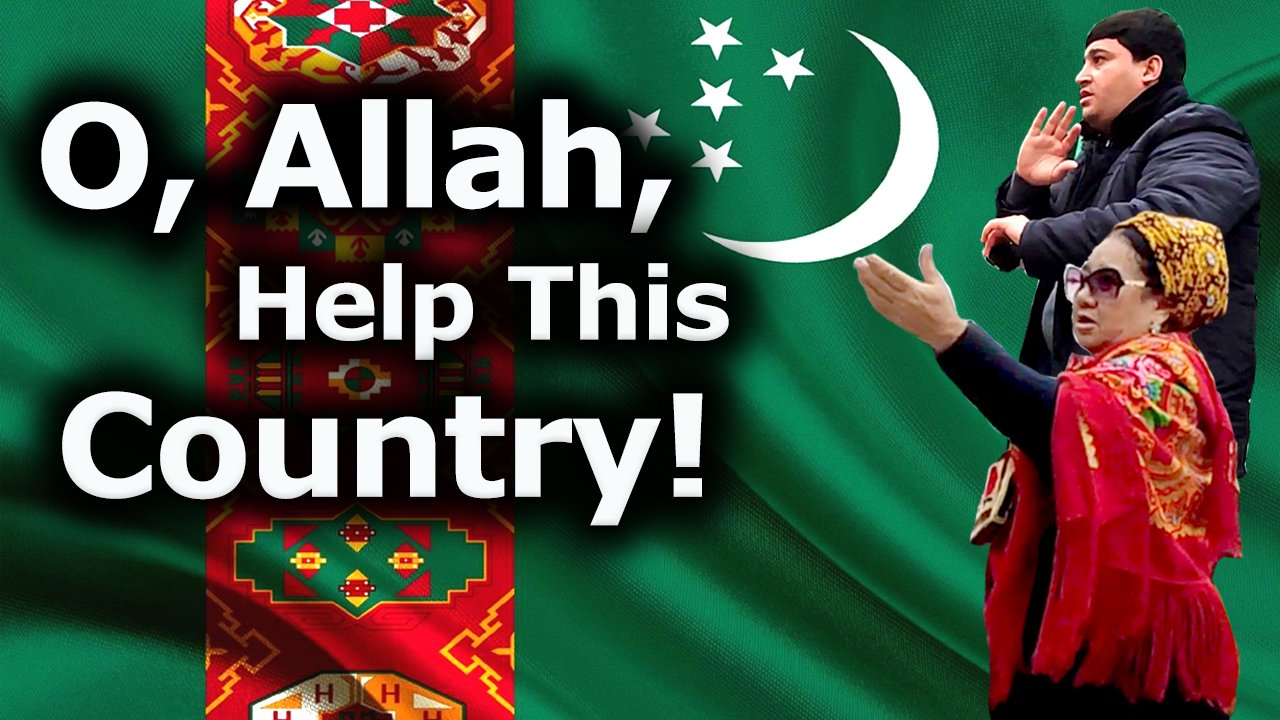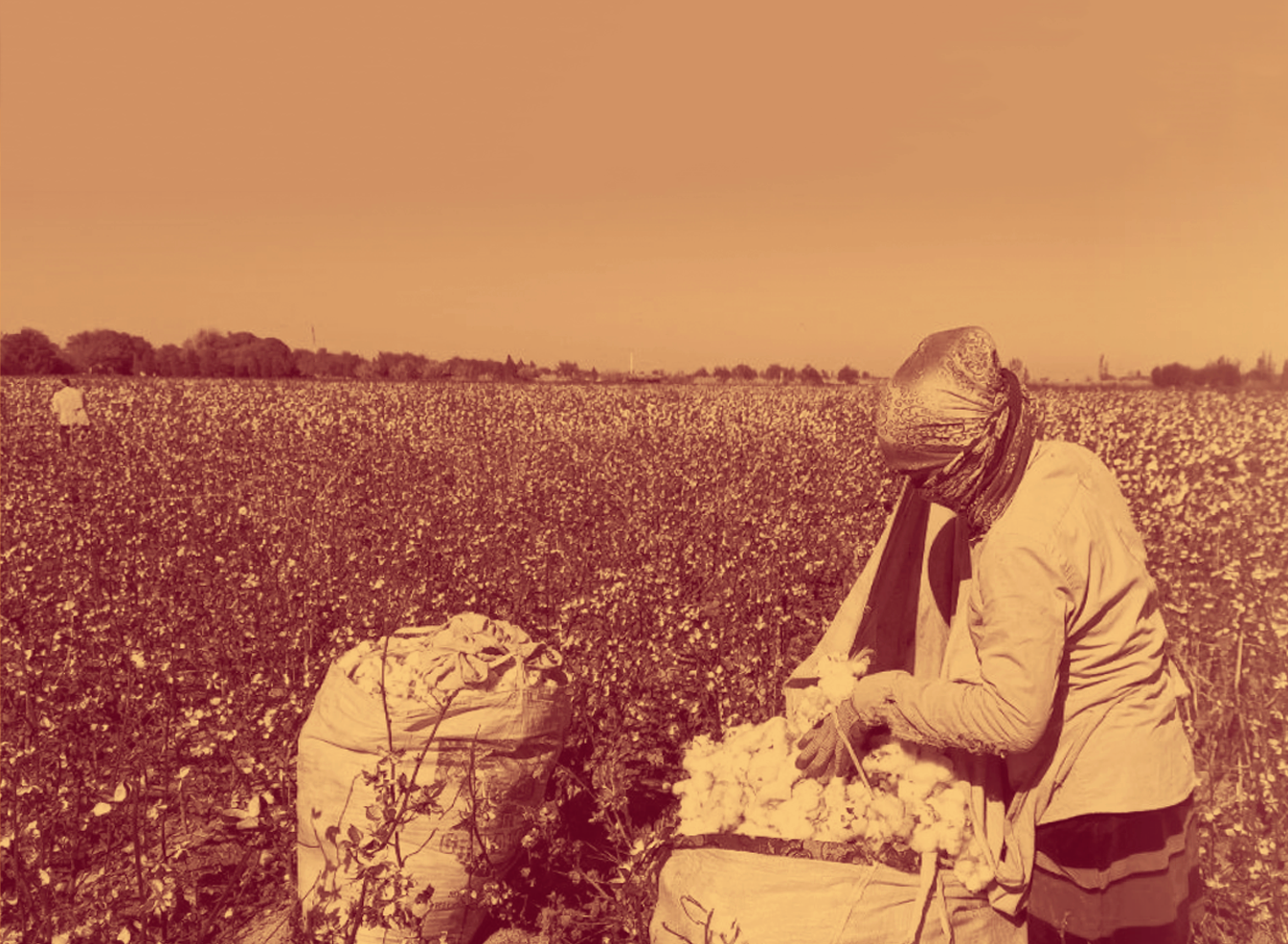
We Are a Coalition of Human Rights NGOs, Independent Trade Unions, Brand Associations, Responsible Investors and Academics, United to End Forced Labor in Cotton Production
The Cotton Campaign is a global coalition working to end forced labor and promote worker rights in cotton and textile supply chains in Central Asia—with a focus on Uzbekistan and Turkmenistan. Under the leadership of Global Labor Justice, the Cotton Campaign leverages supply chain governance, accountability and trade tools to end and prevent forced labor, expand and protect freedom of association and collective bargaining rights for workers, and empower civil society. Our work is grounded in the findings of independent civil society monitoring of the annual cotton harvest in Uzbekistan and Turkmenistan, as well as broader monitoring and reporting by human rights organizations.
When the Cotton Campaign launched in 2007, the Uzbek government was forcing over one million children and adults to pick cotton every year during the cotton harvest. In 2021, following almost 15 years of intense work by the Cotton Campaign, in combination with the Uzbek government’s political will, and technical assistance and engagement by the ILO, Uzbekistan eliminated systemic state-imposed forced labor in the annual cotton harvest. Since then, the Cotton Campaign has been working to leverage market access to further expand the space for labor rights in the cotton and (the newly developed) textile sectors in Uzbekistan. This work also seeks to improve the global brands’ sourcing practices, which, in the long-term, may have spillover effects for workers across the brands’ other sourcing countries.
In Turkmenistan, the government continues to use widespread and systematic forced labor in the annual cotton harvest. Despite some shifts recorded in the 2023 and 2024 cotton harvests, the Turkmen government continues to force public sector workers—including doctors, teachers, cultural workers, employees of utilities organizations, and state-owned factories—to pick cotton or pay for replacement pickers under threat of penalty, and extorts money from the same workers to pay expenses related to the harvest. The Turkmen government also exerts control over all aspects of public life and severely represses all civic freedoms.
The advocacy, campaigning, and legal strategies of the Cotton Campaign coalition are informed by findings and reporting of brave human rights activists and labor monitors, especially by Uzbek Forum for Human Rights, Turkmen News, and the Turkmen Initiative for Human Rights, all core frontline members of the Cotton Campaign. Notwithstanding differences in the extent to which freedom of speech and activism are protected across countries, reporting on rights violations in Central Asia generally comes with great personal risk. This is why the Cotton Campaign has worked to empower civil society, protect freedom of expression, and expand civic space in Uzbekistan and Turkmenistan—which are critical to end forced labor and create the necessary conditions to increase workers’ ability to organize and bargain collectively for better conditions.
-
According to the ILO Forced Labor Convention, 1930 (No. 29), forced or compulsory labor is “all work or service which is exacted from any person under the threat of a penalty and for which the person has not offered himself or herself voluntarily.” We refer to “state-imposed forced labor” when forced labor forms part of a state policy, meaning it is imposed and enforced by the state, at all levels of government, and is widespread or systemic.
In the report Turkmenistan Cotton: State-Imposed Forced Labor In The 2024 Harvest And Links To Global Supply Chains,you can find a visualisation of Turkmenistan’s top-down chain of command and system of control through which the government forces teachers, doctors, technical staff of schools, kindergartens, hospitals, and clinics, and employees of utilities organizations and public agencies to pick cotton or pay for a replacement picker.
-
The Cotton Campaign is a core partner of the Coalition to End Uyghur Forced Labor. The Coalition uses research, campaigning, policy and legal tools to build pressure on the Chinese government to end state-sponsored forced labor and other egregious human rights abuses against Uyghurs, within and outside the Uyghur Region.
A number of NGO and trade union members of the Cotton Campaign are Steering Committee members of the Coalition to End Uyghur Forced Labor, including the AFL-CIO, Anti-Slavery International, and Global Labor Justice.
Cotton pickers, Uzbekistan, 2021
Buses transporting public sector workers to the cotton fields, Turkmenistan, 2016
A Cotton Campaign Delegation met with Uzbek human rights activists and independent labor monitors, Uzbekistan, 2020
15+ Years of Campaigning and Advocacy
- A Photo Timeline of the Key Actions and Milestones -
December 2005: Environmental Justice Foundation launches WHITE GOLD. THE TRUE COST OF COTTON, a report exposing child labor in Uzbek cotton production.
June 2009: Uzbek civil society activists launch a petition calling on international stakeholders to boycott forced labor Uzbek cotton.
May 2009: Several brands ban forced labor and Uzbek cotton in their supply chains. The Cotton Campaign launches the Uzbek Cotton Pledge to standardize language and consolidate advocacy efforts. Over 300 brands signed the Pledge and committed to not use Uzbek cotton as long it is produced with forced labor.
2010: A report by the Uzbek Forum and Environmental Justice Foundation exposes that child labor is systematic and persistent in the harvest of Uzbek cotton.
September 2014 (1/3) : Global Day of Action to End Forced Labor in the Cotton Sector in Uzbekistan. Cotton Campaign coalition activists deliver a petition to Uzbek officials to stop forced labor. Washington: AFL-CIO, American Federation of Teachers, Child Labor Coalition, Human Rights Watch (HRW), International Labor Rights Forum (ILRF) and Solidarity Center deliver petition to Uzbek Embassy.
September 2014 (2/3) Berlin: Uzbek Forum delivers petition to Uzbek Consulate.
September 2014 (3/3) Tashkent: Human Rights Alliance of Uzbekistan delivers petition to Uzbek Education Ministry
December 2015 (1/2): On International Human Rights Day 2015, Cotton Campaign members Walk Free and International Labor Rights Forum (ILRF), project images of Uzbekistan forced labor onto the headquarters of the World Bank in Washington D.C.
December 2015 (2/2): The World Bank was at the time investing more than $500 million in Uzbek agricultural projects, despite the Government's use of systematic forced labor to harvest cotton.
2015, Uzbekistan: The ruthless and relentless persecution of human rights defenders reaches unprecedented levels. Elena Urlaeva, a long-time human rights and civic activist, who had monitored labor rights in the cotton harvest for many years, was repeatedly arrested as a result of her work.
2016: Uzbek Forum's interactive report about the 2015 cotton harvest exposes the Uzbek Government's forced labor chain of command system
May 2016: International Labor Rights Forum (ILRF) honors the Uzbek activists and independent labor monitors for their tireless efforts to expose and end forced labor during the "Labor Rights Defenders Awards" event.
March 2016: Umida Niyazova, Director of the Uzbek Forum for Human Rights presents a petition to World Bank President Dr. Jim Yong Kim, calling on the Bank to suspend lending to the agriculture sector in Uzbekistan until the Uzbek Government changes its policy of forced labor in the cotton industry. The petition was signed by over 140,000 people from around the world.
June 2017: A report by Human Rights Watch (HRW) and Uzbek Forum exposes the World Bank’s links to child and forced labor in projects worth half a billion dollars to the Uzbek Government. Intense advocacy with the World Bank leads to a historic public acknowledgement of the use of forced labor in a speech by President Mirziyoyev at the UN in September 2017.
September 2017: At the OSCE Human Dimension Implementation Meeting, Director of Turkmen News exposes abuses by the Turkmen Government against Turkmen civil society activists.
May 2018: As a result of a submission submitted by the Cotton Campaign two years earlier, the U.S. Customs and Border Protection (CBP) issues a Withhold Release Order (WRO) against cotton originating in Turkmenistan.
October 2018 (1/2) Cotton Campaign protest at United Nations in New York, calling on the Turkmen Government to end forced labor and release activist Gaspar Matalaev.
October 2018 (2/2) 84,000 call on the Turkmen Government to immediately release Gaspar Matalaev, who was arrested for monitoring and reporting on the systematic use of forced adult and child labor in Turkmenistan.
October 2018: Adidas, H&M, and Gap are among the first 12 brands and retailers to sign the Turkmen Cotton Pledge and commit to not source cotton from Turkmenistan until forced labor in its cotton sector has been eliminated. By 2021, the Pledge was signed by 140 brands and retailers.
March 2019: Cotton Campaign partner Anti-Slavery International launches key report about the risk of Turkmen forced labor cotton in global supply chains
June 2019: After more than a decade of international pressure, the Cotton Campaign receives an invitation from the Uzbek Government to advise on its reform agenda. In response, the Campaign and partners developed and presented to the Government the Roadmap of Reforms, which was received positively. The Roadmap is built on three pillars: 1) end systemic forced labor, 2) enact structural reforms, and 3) empower civil society.
January 2020: A Cotton Campaign Delegation visits Uzbekistan for the second time since the Campaign began. Productive meetings with the Minister of Labor and other senior Uzbek government officials.
January 2020: A Cotton Campaign Delegation meets with Uzbek human rights activists and independent labor monitors.
January 2020: A Cotton Campaign Delegation meets members of the independent labor rights civil society group Akbaskur (formerly called Chiroq) in Uzbekistan. The Uzbek Ministry of Justice has repeatedly denied Akbaskur's applications for registration.
January 2020: The Cotton Campaign delivers remarks about the Uzbek Government's progress to end forced labor at a meeting with high-level Government officials.
January 2020: A Cotton Campaign Delegation visits cotton fields and engages with farmers and cotton workers, Uzbekistan.
February 2020: During a high-level Roundtable in Tashkent, Cotton Campaign members, including Human Rights Watch (HRW), Solidarity Center and independent labor rights monitors, call for broader reforms to empower civil society in Uzbekistan.
May 2020: Cotton Campaign members Turkmen News, Anti-Slavery International and Responsible Sourcing Network present on the forced labor situation in the 2019 cotton harvest in Turkmenistan and the risks of Turkmen cotton in brands' supply chains.
June 2020: For over a decade, as a result of the Cotton Campaign's advocacy, the U.S. State Department’s Trafficking in Persons (TIP) annual report has maintained Turkmenistan at Tier 3, the lowest ranking
December 2021: A Cotton Campaign Delegation meets with the Uzbek Deputy Minister of Labor and his team. Both parties reiterate their commitment to continue working together to protect labor rights in the cotton sector.
December 2021: Uzbek Forum and GLJ-ILRF representatives meet with a group of Uzbek human rights activists, who have been instrumental to Uzbek Forum’s work to monitor the annual cotton harvest since 2010, Uzbekistan.
December 2021 (1/2): Documentary film about the COVID-19 pandemic in Turkmenistan, by Cotton Campaign member Turkmen News. The Turkmen Government continues to deny the existence of COVID-19 in the country and has punished those who attempt to expose the real situation of the pandemic.
December 2021 (2/2): Journalist Ruslan Myatiev, founder of Turkmen News, discusses the documentary film at the Human Rights Festival in Bishkek, Kyrgyzstan. No measures to contain the COVID-19 virus were observed during the 2020 and 2021 cotton harvests, as workers were forced to travel to the fields in overcrowded buses and were not given masks. As the Government tightened travel restrictions, preventing travel between regions and districts, it became increasingly difficult for independent monitors working with Turkmen News and Turkmen Initiative for Human Rights to conduct field trips to document labor conditions in the harvest.
March 10, 2022 (1/3): For the first time in 11 consecutive years of monitoring forced child and adult labor in Uzbekistan’s cotton fields, Uzbek Forum found no systemic or systematic, government-imposed forced labor during the 2021 cotton harvest.
March 10, 2022 (2/3): As a result, the Cotton Campaign announced it ends its call for a global boycott of Uzbek cotton and lifts the Uzbek Cotton Pledge, at a press conference in Tashkent, Uzbekistan, on March 10, 2022.
March 2022: The Cotton Campaign developed a Framework for Responsible Sourcing. Within this Framework, global brands, Uzbek cotton producers, and labor groups can work collaboratively and at scale to establish and maintain strong standards in the emerging Uzbek textile industry.
March 10, 2022 (3/3): The recording of the press conference - jointly hosted by the Cotton Campaign and the Ministry of Labor and Employment of Uzbekistan - is available at this link.
Approach And Achievements
The Cotton Campaign’s work is grounded in the findings of independent civil society monitoring of the annual cotton harvest in Uzbekistan and Turkmenistan, as well as broader monitoring and reporting by human rights organizations. The Campaign’s truly multi-stakeholder approach and its wide range of legal, policy, and campaigning tools have been critical to achieving the elimination of systemic state-imposed forced labor in Uzbekistan’s cotton industry. These include independent monitoring, calling for a global boycott of cotton made with forced labor, policy advocacy, supply chain research, brand engagement, and accountability actions against state and non-state actors profiting from forced labor.
Adapting its strategy to the evolving political and economic contexts, the Cotton Campaign intersects with the global movement for worker empowerment and social justice through its work to fight authoritarianism, promote workplace democracy, eliminate forced labor from supply chains, hold international finance institutions accountable for their investments, and develop new forms of transnational bargaining to protect labor rights at all tiers of the supply chain.
-
When the Cotton Campaign launched in 2007, the Uzbek Government was forcing over one million children and adults, including medical staff, public sector employees and students, to pick cotton every year during the harvest. Years of intense policy advocacy and campaigning, led by Uzbek and international civil society, combined with the Uzbek government’s political will and technical assistance by the ILO, made the elimination of systemic state-imposed forced and child labor a reality.
Key elements of the Cotton Campaign’s strategy to end forced labor in Uzbek cotton include:
Independent monitoring of the annual cotton harvest in Uzbekistan. Since 2010, Uzbek Forum for Human Rights, Cotton Campaign’s frontline Uzbek partner, has monitored the harvest each year. Uzbek Forum’s network of independent and trained monitors is highly skilled in monitoring labor and human rights issues and has a wide range of contacts in rural communities. Every year, Uzbek Forum conducts direct interviews with cotton pickers, farmers, local government officials, and employees of (state) organizations directly involved in the cotton harvest, and collects and analyses information received through media and social media.
Prompt reporting to the international community on the government’s egregious abuses against human rights activists and independent labor rights monitors. The Cotton Campaign and its partners exposed cases of arbitrary detention, threats, and degrading ill-treatment by government officials to silence independent monitors and undermine their ability to conduct research and provide information about rights violations in cotton production. Before the Uzbek government publicly acknowledged that Uzbek cotton was being produced with forced labor and began taking steps to end this practice, government officials took harsh action against anyone who exposed this.
Today, the civic space in Uzbekistan remains tightly and arbitrarily restricted. Uzbekistan’s reform program has produced results in terms of eliminating the systematic forced labor of pickers. But in prioritizing prohibition and enforcement, this approach has failed to open up space for independent unions, allow civic participation and develop systems of oversight, transparency, and governance.
Maintaining a Company Pledge against Uzbek forced labor cotton. In 2010, the Cotton Campaign and its partner Responsible Sourcing Network (RSN) launched the Company Pledge Against Forced Labor in the Cotton Sector of Uzbekistan. By signing it, brands and retailers publicly committed to not use Uzbek cotton in their products as long as it was produced with state-orchestrated forced labor. Within one year, the Pledge was signed by 60 brands. By 2021, the Pledge reached over 320 signatory brands. The Pledge has been critical in the Cotton Campaign’s success to pressure the Uzbek government to end child and forced labor in cotton production.
Findings of independent civil society monitoring of the 2021 harvest showed that systemic state-imposed forced labor is no longer used in the cotton harvest. As a result, on March 10, 2022, the Cotton Campaign ended its call for a global boycott of cotton from Uzbekistan and announced the lifting of the Pledge.
Advocacy with International Financial Institutions (IFIs). Through advocacy and campaigning, the Cotton Campaign successfully leveraged the IFIs’ commitments to human rights to push for reform in Uzbekistan. Research by the Cotton Campaign and Uzbek Forum exposed the World Bank’s links to child and forced labor in projects worth half a billion dollars to the Uzbek government. Intense advocacy with the World Bank and other IFIs prompted the Uzbek government’s approval for the ILO to begin a monitoring program in the country and, ultimately, it led to the government’s historic public acknowledgement of the forced labor problem in a speech by President Mirziyoyev at the UN in September 2017.
Advocacy with the government of Uzbekistan. In late 2017, the Uzbek government made a groundbreaking political commitment to end forced labor. Since then, the Cotton Campaign has deepened its high-level dialogue with the government to engage constructively in Uzbekistan’s reform process. In 2019, the government invited the Coalition to advise on its reform agenda. In response, the Coalition developed and presented to the government a Roadmap of Reforms, which was received positively. The Roadmap builds on three (strategic) pillars: 1) ending systemic forced labor, 2) enacting structural reforms and 3) empowering civil society. The Cotton Campaign continues to use this Roadmap as the basis for our engagement with the government and cotton textile companies in the country to ensure that reforms to end forced labor are robust and sustainable.
At this new stage in Uzbekistan’s development, as the country seeks to establish itself in the global textile market, the Cotton Campaign highlights the need for broader reforms to empower civil society, protect freedom of association and promote responsible sourcing.
In 2017, the government of Uzbekistan embarked on a major economic reform program to privatize the cotton industry and expand the manufacturing sector. Supplier textile companies (known as “clusters”) control all aspects of production, from cotton growing and harvesting, through to various stages of value-added processing, up to manufacturing of finished goods.
This transformation process has, however, primarily focused on supply chain integration. It has not sufficiently emphasized the need for adequate mechanisms to prevent, identify and address labor abuses at all levels of production.
The Cotton Campaign has developed a model of innovative, rights-based solutions, equipped to guide a re-opening of the Uzbek cotton market to international brands and retailers, while protecting workers’ rights and promoting space for independent civil society.
At the same time, Uzbek Forum has been monitoring and reporting on the process and impacts of land transfers from farmers to clusters (direct farming) and the relationships between farmers and the clusters they are producing cotton for (indirect farming).
-
Turkmenistan is one of the most repressive countries in the world. It exerts control over all aspects of public life and severely represses all civic freedoms. The government uses widespread and systematic state-imposed forced labor in the annual cotton harvest. Every year between August–November, public authorities force state employees to pick cotton or pay for replacement pickers under threat of penalty, including loss of employment or reduction of work hours or pay.
The Cotton Campaign has used the following tools to increase pressure on the Turkmen government to end its forced labor system:
Using independent reports of the forced labor conditions in the cotton fields to advocate with governments, international organizations, brands and investors. These reports are provided by a team of brave, independent activists and labor monitors who work with the Cotton Campaign’s Turkmen partners - Turkmen News and Turkmen Initiative for Human Rights – and run the risk of arrest and torture for doing this work.
Maintaining a Pledge against Turkmen Cotton. Over 140 brands and retailers signed it and publicly committed to not use Turkmen cotton in their products as long as it is produced with state-orchestrated forced labor.
Advancing Turkmen forced labor cotton on the agenda of policy makers, in the context of mandatory human rights due diligence (mHRDD) and trade instruments as tools to push for reform. In 2016, the Cotton Campaign and its partners submitted a petition to exclude all cotton products made in Turkmenistan from the U.S. due to the state-imposed forced labor system in cotton production. The U.S. Customs and Border Protection (CBP) subsequently issued a Withhold Release Order (WRO) against Turkmen cotton in May 2018, which was the first such country or region-wide WRO to exclude an entire commodity.
Tracing Turkmen cotton in global supply chains and advocating with global brands and retailers, policy makers and customs authorities across jurisdictions to eliminate it from the global supply chain.
Maintaining a safe communications channel with monitors and activists on the ground, to promptly report on the government’s egregious abuses and call on international stakeholders to use their leverage and influence with the Turkmen government to end the abuses.
Coalition Members
As a multi-stakeholder coalition, the Cotton Campaign collaborates closely with key partner organizations. These include Uzbek, Turkmen, and international human and labor rights NGOs, independent trade unions, brand and retail associations, responsible investor organizations, supply chain transparency groups, and academic partners.



